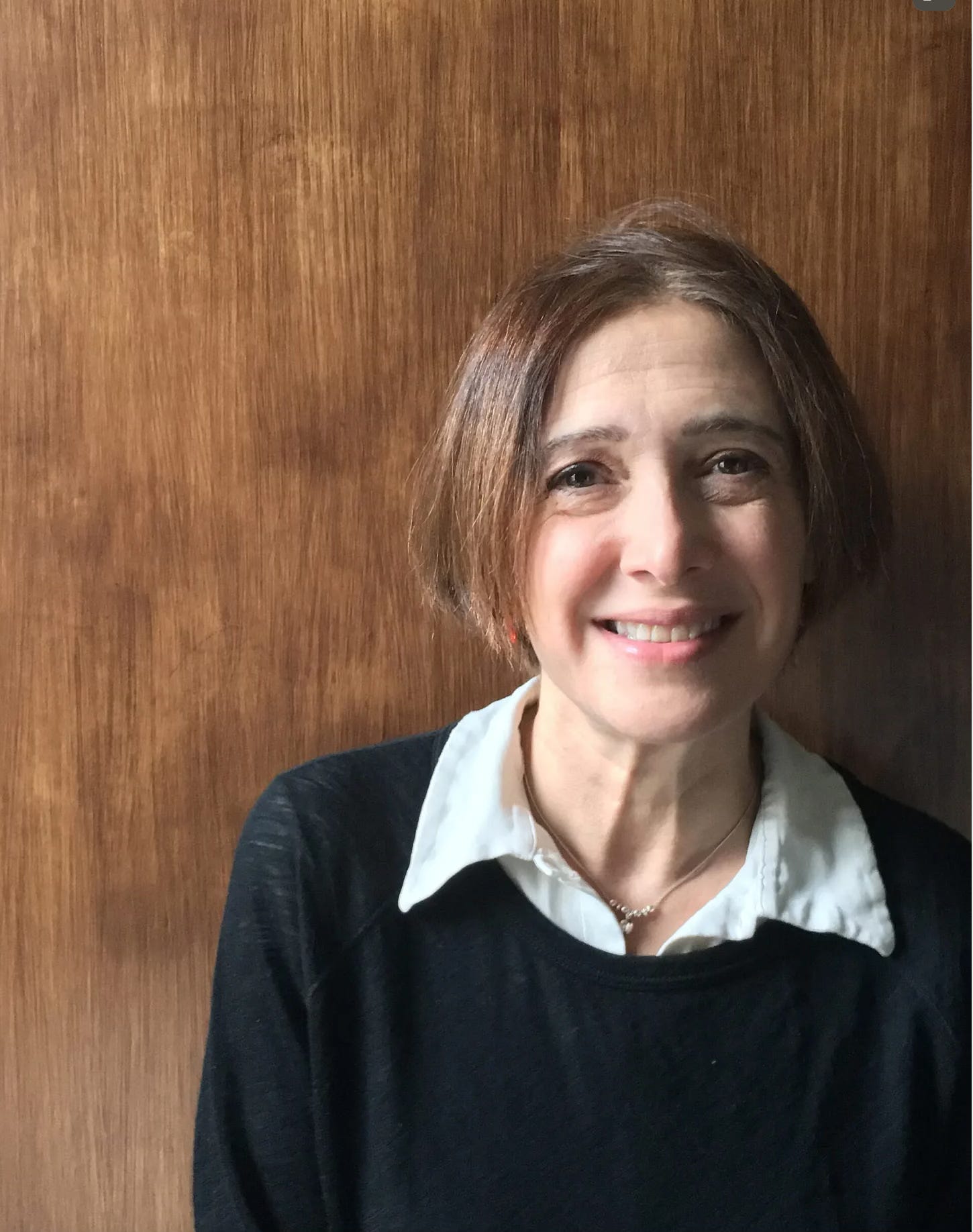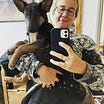Research tips and insights on writing personal essays from a brilliant editor
Dr Lily Dunn reflects on when author and editor Marina Benjamin spoke to her undergrad students about the importance of research, and what she looks for in a personal essay
Following on from a post I wrote about research, How do we research a memoir I have been thinking again about how important research is when writing personal narrative - and I returned to a discussion I had with author and editor, Marina Benjamin who came to speak with them before the deadline of their research folder assignment.
Marina is my editor at Aeon magazine, where I have published a number of essays, and she is also a writer of creative non-fiction, personal essays and memoir. She has written six books, most recently a trilogy exploring the midlife experience in real time. The Middlepause (2016) and Insomnia (2018) were widely acclaimed in the UK, US and elsewhere and have been translated into 9 languages. Marina's latest book A Little Give (2023) completes the trilogy. Her essays have appeared in The Paris Review, Granta, Aeon and the TLS. She lives in London and is a senior editor at Aeon Magazine.
Below, I pick out some of the little gems from our conversation.
On when and how to research
If we don’t yet know what our memoir’s central question is, we risk drowning in research, reading way too much, way too widely, and totally losing our way. Marina interestingly avoids this in her own writing practice, by often doing the writing and the research at the same time. She trusts her instinct, and at the start of a project tends to do a lot of free-writing, to help work out the direction the writing wants to go in. This way the research will come as a response to the questions being asked, not the other way around.
There is research that you can see - in the form of paraphrasing and referencing that research in the text itself, and with quotes - and research that you can’t see - that which informs the writing. Marina talked about how in order for the writing to have a light touch it is more effective if the research feels like a natural response to the author asking questions, so the research becomes a response to the writing, not the other way around. ‘You shape it and pull in research where your curiosity leads you. It’s more organic that way,’ Marina says. She spoke of sidling up to a subject, rather than making it obvious.
How is a personal essay different from a straight essay?
Marina and I spoke a bit about the difference between a straight nonfiction essay and a personal essay, and the kinds of things she looks for as a senior editor at Aeon. In a straight nonfiction essay, she likes the author to have a ‘searching’ quality, rather than projecting an ‘expert’ voice, one in which the research and authority is communicated between the lines. An author knowing their subject and having writerly control. Whereas personal essays can be more immersive, the author pulling the reader into the centre of their world ‘ambushing them and holding them hostage.’ She likes personal essays that grab the reader by the collar and pull them into that world and make them stay – sometimes uncomfortably.
We also both agreed that there is something satisfying about having a sense of growth in a personal essay, which can often evolve from what is being discovered. This might be a new understanding or perhaps the essay moves in a new direction because the writer is making discoveries through their writing and their research. Marina described it as ‘jogging the frame’. This can add a element of surprise, as well as more layers to the writing. ’If an essay is not doing this, it is somehow failing,’ Marina says.
When you have a brilliant editor
Reflecting on my own relationship with writing and with Marina as my editor, I realise how lucky I am to have an editor who nudges me out of my comfort zone, and how much I have developed as a writer as a result. I will send her a first draft of an essay and her notes often help me find my thread. Marina’s instinct as a writer extends to her being a very instinctive editor, and crafting an essay becomes a symbiotic process. At the start I am often moving around in the dark, bumping into things, and Marina shines a light where she wants me to place my attention. It’s a symbiotic and really satisfying process, because Marina often sees things in what I have written that I am not yet able to see, and somehow having her there to guide me (with her torch) gives me the confidence to step into areas that I might not have managed on my own.
In our conversation, Marina talked about the importance of making yourself vulnerable as a writer. ‘People talk about exposing yourself as if you’re revealing something, but the exposure is much more about the challenge you face in acknowledging difficultly in your relationships or people you’re writing about… vulnerability is what pulls the reader in. The reader needs to sense that there is something at stake for you in writing about what you are writing about.’
It’s this risk that makes a personal essay compelling - that the writer is taking a risk in writing it. If a writer doesn’t go deep enough or immerse themselves enough in the writing process, they won’t immerse their reader, and it risks reading thin like a personal anecdote. As writers of personal narrative we need to confront ourselves. This, Marina says, is part of the difficult work. We can’t avoid it, particularly when we are pestered by those experiences that won’t go away until we face the ghosts.
This post originally appeared over on
Substack, and she runs Memoir Club here on The Writing Laboratory, where she discusses a personal essay each month, and on her own personal substack she runs Memoir WIP Surgery, which is happening tomorrow evening at 6pm GMT.






Thank you for sharing this. There’s a lot in here.
What struck me today (tomorrow my reading of the piece may well cast a different light, and one which is more attuned to the personal essay) is the point you and Marina Benjamin make about the author having a searching voice, rather than an expert voice, in straight non-fiction writing. As a reader, it is so much rewarding to read with some quality of searching, rather than to be spoken to by an expert voice that leaves one no room. I’m never good at being told.
Very interesting, especially the discussion on the differences between personal and straight essays. Thanks for sharing!